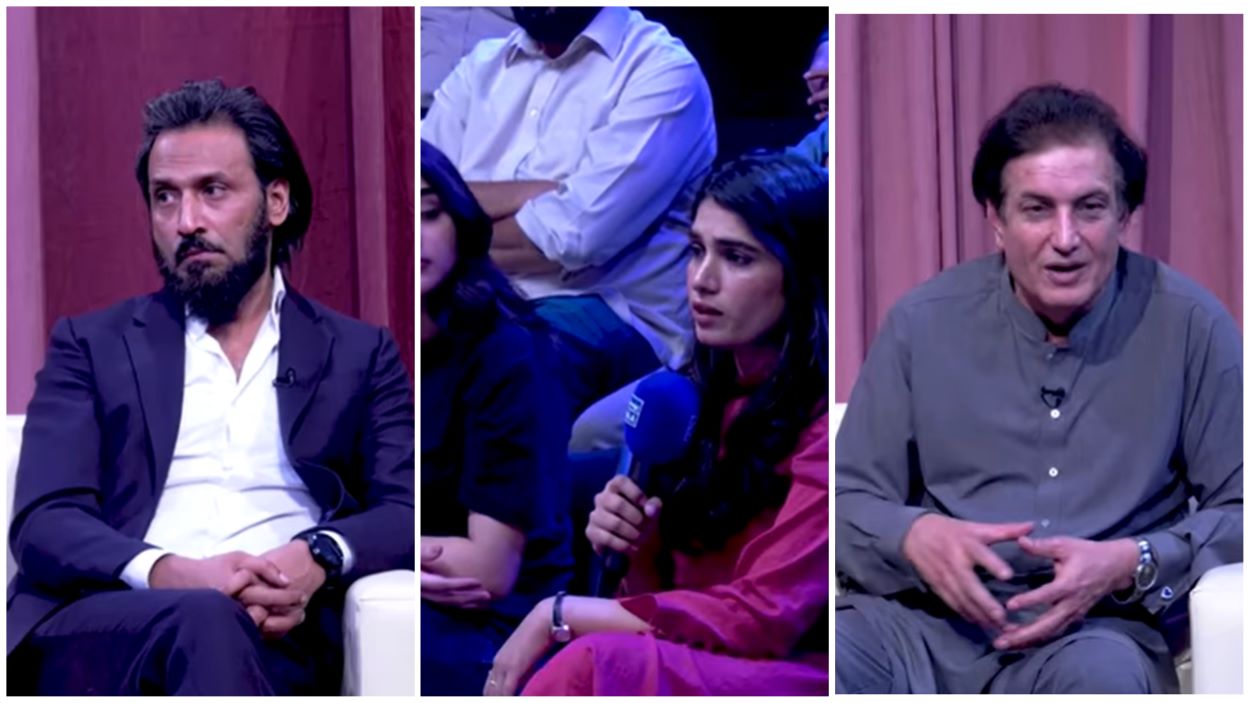A broadcast on Samaa TV, a contentious exchange involving religious scholar Sahil Adeem and playwright Khalil-ur-Rehman Qamar, was revealed to be scripted, raising questions about the authenticity of such televised debates.
The event unfolded when Adeem made controversial remarks about the education level of women, claiming 95% of them are uneducated, which provoked a strong reaction from a woman in the audience demanding an apology.
The debate, also involving Qamar, quickly intensified, capturing the attention of social media users and escalating into a broader controversy. However, revelations by senior journalists, including Abdul Waheed Murad and Umar Cheema, later exposed that the heated discussion was pre-arranged and that the woman challenging Adeem was a journalist employed by the channel.
Murad highlighted this by sharing a screenshot of the woman’s TikTok profile and noted that Samaa TV insiders confirmed the scenario was a setup intended for their digital platform. Cheema added context by remarking that he was aware of the woman’s affiliation with Samaa TV, underscoring the need to discern whether her interjections were genuine inquiries or prompted by the show’s producers.
Cheema further disclosed that the broadcast version was edited to omit certain parts of the exchange, suggesting manipulation of the dialogue presented to the public. Murad responded to these practices by stressing the need for transparency in such programs, arguing that audiences should be informed when participants are not ordinary citizens but are affiliated with the channel to avoid misleading viewers.
These revelations have sparked a discussion about media outlets’ ethical responsibilities to conduct genuine journalistic practices and maintain viewer trust.






